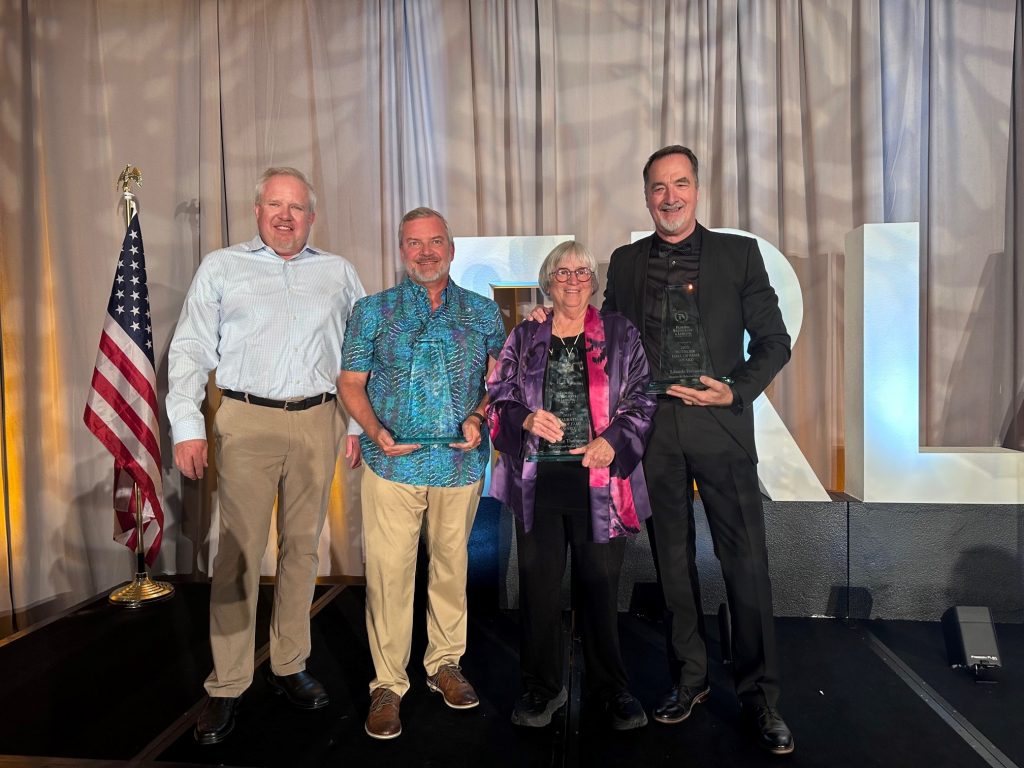By Robert DiGiacomo
Do you ever wonder what happens to the leftover supermarket rotisserie chickens at the end of the day? Or all those everything bagels in the case at closing time? Or the extra macaroni and cheese, collard greens, cornbread and other sides at your local barbecue chain?
Unfortunately, much of this perfectly edible food probably goes to waste; more than one-third of the food produced in the U.S. is not consumed, according to the EPA’s 2021 report, Farm to Kitchen: The Environmental Impacts of U.S. Food Waste. The environmental impact of one year of food waste is staggering—it uses the same water and energy as 50 million homes and emits the equivalent level of greenhouse gases as those generated by 42 coal-fired plants. Meanwhile, nearly 34 million people—including 5 million children—are grappling with food insecurity in the U.S.
But there are multiple players deploying technology to help disrupt this waste chain. These tech-powered companies and nonprofit groups are using app-based tools that connect to virtual dashboards to match unwanted food and grocery items from restaurants, corporate cafeterias and supermarkets with community-based groups that feed the hungry. The dashboard allows a restaurant owner, chef or manager to upload what food is available, along with delivery or cooking instructions and shelf life, and a nonprofit partner to claim the item. Depending on the service, the app can dispatch a third-party service driver or volunteer within a specified time frame to ensure the food is viable after delivery.
“Much food waste occurs because of confusion over labeling,” says Suzannah Paul, director of Philly Food Rescue (PFR), which is part of the Share Food Program, a regional food bank and hunger relief organization. “Best-by, use-by, sell-by, and even marked expiration dates are not true safety indicators or real expiration dates, except in the case of infant formula.”

The USDA and EPA have set an ambitious goal of slashing food waste by 50% by 2030. Reducing or eliminating food waste “presents opportunities to increase food security, foster productivity and economic efficiency, promote resource and energy conservation, and address climate change,” according to the EPA. Can this technology remove a key barrier to alleviating this food waste crisis?
Serving a tech solution
Founded by entrepreneur Jasmine Crowe in 2017, Goodr takes a holistic view of waste—it partners with major food service companies like Compass, Aramark, and Sodexo, hotel chains like IHG, and other food industry clients in more than 30 cities around the country to manage and process their food waste—whether through donations and other “hunger relief solutions,” or services like waste management and organic composting.
For the Atlanta-based B Corp., dealing with food waste is a matter of “logistics,” according to Ryan Moore, senior partnerships manager. Their tier of services “allows for businesses to get rid of any food scraps—things they prepare food with, anything that’s leftover and not eaten on a plate,” Moore says.
A recent transport coordinated by Goodr consisted of 17 trays of cooked chicken, pork, potatoes and green beans. Using its dashboard-based system, Goodr was able to quickly get the food to a nonprofit behavioral healthcare agency called Homeward Bound in Dallas.
With the organization providing 70 to 100 people with three meals a day, the timing couldn’t have been better. “Having the meals already cooked was great because, like everyone else, we are having trouble finding staff,” says Christine Wicker, Homeward Bound’s director of development.
Data: the crucial ingredient

Describing its mission as “for profit, for good,” Goodr says it has been able to scale quickly because it’s a business. It claims a community and environmental impact of facilitating 30 million meals, diverting 3 million pounds of food from landfills and preventing 6.2 million carbon emissions. Businesses pay a monthly fee based on the number of scheduled pickups and can claim a tax deduction for food they donate. In 2022, Goodr nearly tripled its staff, going from 13 workers in July to about 35 by the end of the year.
“We would not be able to do this without being in the time of technology,” Moore says. “The popularity of Uber and other apps allows Goodr to do this. We leverage ride-share companies to do what we do—the majority of our pickups are drivers that are already in transit. There’s no middleman, so we can make sure the food doesn’t end up in the landfill.”
For Goodr, data analysis plays a key role not only in matching available food with the right recipient but also in helping donors better understand the demand for their products or menu items—and how to reduce waste.
Several years ago, for example, one of Goodr’s bagel clients was tossing 200 bagels a day. After just three months of tracking, they were able to cut the amount by more than half. Another customer operated a corporate cafeteria and, through the metrics on their Goodr dashboard, determined that three of their five most-wasted products featured pork. As a result, they retooled the menu to better reflect their audience preferences.
For overburdened chefs, the ability to donate unused food has provided an incentive for them to track their data more carefully. “Our goal is to show clients, ‘You’re wasting this much food, and this is what you’re wasting,’” Moore says. “It’s going to allow them to be better at not wasting food. If you add an incentive that you can donate it to local nonprofits and help your community, that’s a whole new incentive for companies that have tried tracking in the past where it hasn’t worked.”
From supermarkets to soup kitchens
In Philadelphia and more than a dozen other cities, the Food Rescue Hero Network helps coordinate the “last-mile” transfer of excess food from businesses by volunteers to nonprofit partners. The network uses a proprietary app called 412 Food Rescue.
“Donations in the Philly Food Rescue app are already matched with a recipient nonprofit,” Paul explains. “What they lack is a ride from the donor to its designated home, and those volunteer opportunities are posted in-app for local volunteers to claim.”
We match donations within five miles or a half-hour’s drive, keeping food within local communities as best we can.
“—Suzannah Paul, director, Philly Food Rescue
Her group works with a range of food businesses, including local farmer’s markets, traditional supermarkets, and convenience stores, as well as upscale restaurants like The Capital Grille and quick-service eateries like DIG. They also accept donations from food distributors (who might contribute entire pallets of food), arranging for deliveries with nearly 300 nonprofits in the Philadelphia area and South Jersey.
“We match donations within five miles or a half-hour’s drive, keeping food within local communities as best we can,” Paul says. “Some food rescues can be completed on a bike. Food donors connect with our team directly to set up one-time or recurring donation pickups. We match donations locally within our recipient partner network and send volunteers to fulfill pickups according to donor preference and need.”
In 2022, the Philly Food Rescue at Share Food Program recovered nearly 5.5 million pounds of food. Under the USDA standard of 1.2 pounds of food per meal, that resulted in some 4.5 million meals for families, seniors and students in the Philadelphia region, according to Paul.
Protections for good Samaritans
For some restaurants and food businesses, liability concerns may prevent them from donating food—if someone gets sick, they don’t want to be held responsible, or so the conventional wisdom goes.
However, several federal laws shield them from liability. The 1996 Bill Emerson Good Samaritan Act offers federal protection from liability of any food donated for free “in good faith.” A newly enacted law—the Food Donation Improvement Act—further exempts from liability donors who provide food at a so-called “good Samaritan reduced price” (basically at cost) and also allows them to donate directly to “food insecure individuals” rather than have to use a nonprofit partner. According to Paul, the Good Samaritan Act “never had any agency offering clarification, so some brands do feel safer throwing good food away. And unfortunately, it’s sometimes given as an excuse for inaction,” Paul says.
To err on the safe side, Philly Food Rescue recommends that all rescued food be distributed, eaten or frozen within 24 hours. “We do quality checks on items in our warehouse and set expectations with food donors about what kinds of donations are appropriate to send out to our partners,” Paul says. “Our partners know the food is still good to eat and won’t be good for long.”
But the best outcome is to avoid food waste as much as possible. While food stores and businesses have their own metrics to follow for generating—and managing—waste, the consumer plays a role, too. That should be food for thought the next time you tap your pizza delivery app for a two-for-one pizza delivery deal when you might only need one pie, RSVP to a business luncheon but don’t stay to eat, or pass over a gallon of milk at the supermarket with a short “sell by” date.
Lead photo courtesy of Shutterstock








